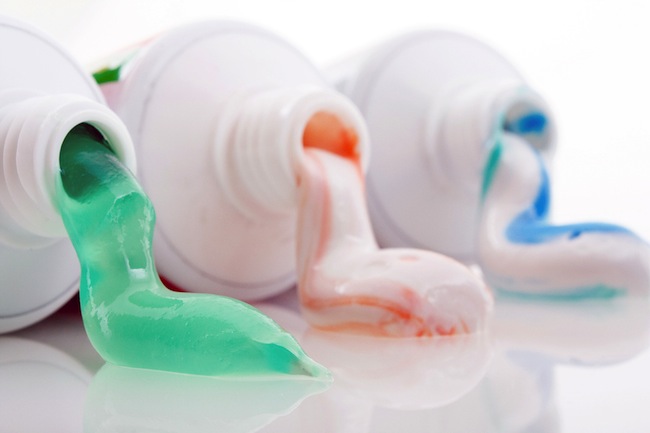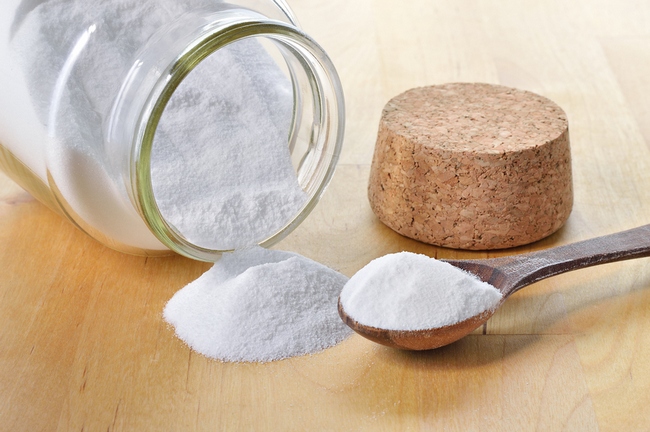- Make It Yourself Lavender Heart-Shaped Bath Bombs!
- 20 Things You Never Knew About “Down There”
- 12 Best Foods For Those Suffering From Arthritis Pain
- 12 Personal Hygiene Mistakes Almost Everyone Makes (Mom Never Told You About #4!)
- 15 Medicinal Plants And Herbs From The Cherokee People
- 12 Mind-Blowing Benefits Of Drinking Coconut Water During Pregnancy
- 12 Outstanding Winter Foods That Won’t Fatten You Up Like A Christmas Turkey
8 Natural Alternatives To Fluoride (#5 – Who Knew?)

Photo credit: bigstock.com
In case you have been living under a rock for the last few years, fluoride has been shown to be an endocrine disruptor for quite some time. There has also been some disturbing evidence lately showing just how destructive it can be. Although fluoride is something that can prevent cavities, it doesn’t do as good a job as one might hope, and the price we pay for using it is very high.
Although finding toothpastes that are fluoride-free is becoming more common, there are still plenty of other ingredients in toothpaste of which you should be aware. Even without fluoride, many types of toothpaste contain titanium dioxide, which is a known carcinogen. Even some natural toothpastes contain glycerin, which is a natural byproduct when making soap. It stops toothpastes from drying out, and it gives them their pasty texture. The problem with glycerin is that it leaves a coating on your teeth that prevents them from remineralizing, weakening them over time. And let’s not forget sodium lauryl sulfate, the same stuff that is in many commercial shampoos. It makes our toothpaste foam, but seriously, do we want degreasers in our mouths? (Or even on our heads?) Also, some toothpastes have artificial sweeteners like saccharin, and no one wants that junk in anything!
Are there alternatives to traditional toothpastes? You bet there are! We have made a list of eight of the best things you can use that will save your health and some cash as well.
1. Coconut Oil
With its antibacterial compounds, coconut oil is a much better choice than the endocrine-disrupting triclosan found in many traditional types of toothpaste. You can use coconut oil as toothpaste (so to speak) or simply use it as a means of oil pulling. Research shows that it slows the increase of many types of bacteria that lead to cavities. There is also a growing research showing that oil pulling with coconut oil lessens overall plaque in the mouth, preventing gingivitis and cavities.
2. Herbal Tooth Powders
You might have seen some of these herbal tooth powders in your local health food store lately, and these powders are a great replacement for conventional toothpastes. Herbal tooth powders do a great job of cleaning, and the herbal extracts ease inflammation in the mouth, stop the bacteria that can cause infections, and some can even ease mild mouth pain.
3. Sea Salt
It doesn’t get much more natural than this, does it? It might seem overly simplistic, but sea salt is a terrific way to kill germs and is abrasive enough to remove plaque easily. In fact, sea salt can be too abrasive. You want to remove plaque, but you don’t want to scrub away your enamel. Put some sea salt in a bit of water first, then dip your toothbrush in the solution and scrub with confidence!
4. Myrrh
Myrrh has been used for years to fight bad breath, so it’s no surprise that now it is added to some natural, fluoride-free toothpastes. You might be wondering, what the heck? How can this work? It’s true that myrrh contains the compound that is actually toxic to the germs that cause bad breath, but that same ingredient is also very effective in tackling periodontal disease. There are some excellent products on the market today that have germ-killing myrrh, no toxic fluoride, and a blend of other herbal ingredients and essential oils that help ensure a healthy mouth.
Continue to Page 2

Photo credit: bigstock.com
5. Neem Oil
If you thought neem oil was just for your hair and nails, we have news for you! This oil is nothing short of amazing. One study showed that using a mouthwash containing neem oil outperformed most fluoride dental products when it came to reducing plaque in the mouth. Other studies have shown that it provided almost unbelievable results when dealing with mild cases of gingivitis. The problem with neem oil is that it doesn’t exactly taste great. The good news is that you can now find many non-fluoride toothpastes with neem leaf extract in them. Read the ingredients, and be sure you aren’t getting a bunch of other things that you don’t want in your toothpaste.
6. Oregano Oil
Oregano oil is another antibacterial oil often consumed to fight infections inside the body. It also does a great job when it comes to dental issues. Oregano oil fights abscesses, mouth sores like canker sores and herpes, and eases the pain of toothaches. Oregano oil is very strong, so always dilute it with another oil, such as coconut oil or olive oil, before using. You can even use this oil like a mouthwash, adding some to a bit of water or mixing it with a different oil, swishing it around in your mouth, and then spitting it out.
SEE ALSO: Homemade Toothpaste Recipe that Remineralizes and Whitens Naturally!
7. Ozonized Olive Oil
Olive oil has been used since ancient times to moisturize skin, hair, and nails, but this super healthy oil goes one step further using a process called ozone injection. This means that the oil is injected for a period of time with ozone bubbles. Ozone is known to kill the bacteria that causes cavities. Some dentists use this procedure today to stop cavities from forming. Rinsing your mouth with ozonized olive oil has been suggested in several studies to be just as effective as traditional dental methods. Try using fluoride-free toothpaste in combination with this ozone injected olive oil as a “mouthwash,” and be amazed by the results.
8. Baking Soda
Perhaps the oldest natural toothpaste around. In the same way you use sea salt, simply wet your toothbrush, dip it in some baking soda, and scrub! If this sounds too harsh, dissolve your baking soda in a bit of water and dip your toothbrush in that solution. Most people use baking soda as a base for their homemade toothpaste. Mix two drops of peppermint essential oil and two drops of stevia with some baking soda, and you have a powerful, minty fresh, completely safe and natural toothpaste of which you will never get tire! You can also use cinnamon essential oil or spearmint if those flavors are more to your liking.
Protecting our gums and teeth takes a bit of time, commitment, and, of course, the proper tools to get the job done. Flossing, tongue scraping, and limiting your sugar consumption are all a part of a good oral hygiene program.
References:
































